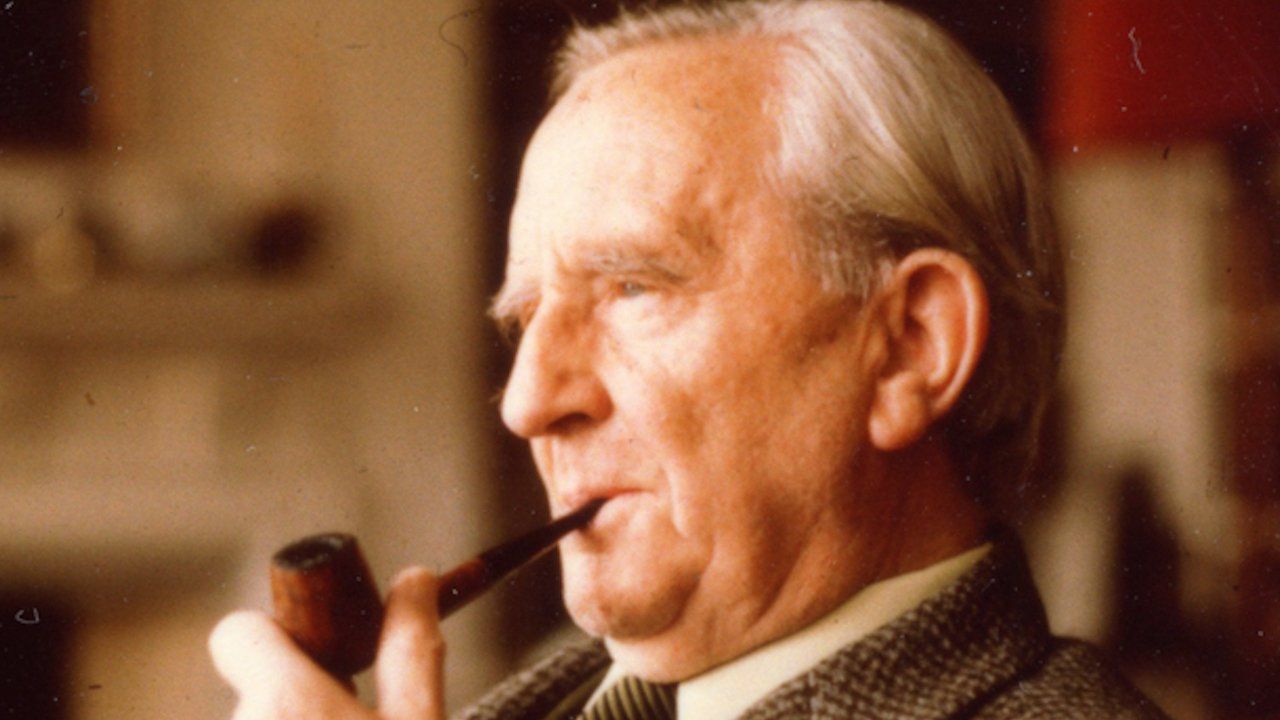Tolkien the Realist: Against the Ethics of Romanticism and the Tyranny of Relativism
by Malcolm Harris
Feast of St Eusebius, Bishop of Samosata
Anno Domini 2015, June 22

IN A RECENT interview in The Bookmonger by John J. Miller of the National Review, Carol Zeleski describes the Inklings as “the last of the Romantics.” In the case of J. R. R. Tolkien, I could not disagree more.
Whereas Lewis acknowledges in Surprised by Joy that he was deeply influenced by neo-Platonism, Tolkien absorbed, as by osmosis, the Thomistic realism that hung in the very air of the Birmingham Oratory (founded by John Henry Cardinal Newman). Here Tolkien gained his early religious instruction. Here too, he and his brother Hillary served as altar boys. Both were raised there after his mother’s death. Mabel Tolkien, who died when Tolkien was eleven, appointed Father Morgan from the Oratory as the boys’ legal guardian. The Oratory was his philosophical and spiritual home.
When Pius XII, in his 1950 Humani Generis, declared Thomism the Church’s official philosophy, it was less an imposition than an acknowledgment of the status quo. The catechisms of that day and the preaching (think of Fulton Sheen) reflected how deeply ingrained Thomism was in the intellectual formation of the pre-Vatican II Church.
Romanticism does not come easily to someone formed in philosophical realism.'
Tolkien’s fiction certainly constitutes a work of great imagination. But that does not make his work Romantic. All fiction is created from the imagination, including the greatest works of the Realists. Tolkien does not move us by heaping up emotive words or florid imagery. He lets the story itself move us.
Reading The Lord of the Rings, the reader is struck by the vivid concreteness of his descriptions. My younger son told me he loved hearing me read The Lord of the Rings to him because he could always see clearly what was being described.
Tolkien’s elves and orcs mislead us. They make us think Middle Earth is very different from our own world or, indeed, Tolkien’s own England. But “Middle-earth” is the very real Anglo-Saxon midden-erd. In 1956, Tolkien explained the term: “Middle-earth is not an imaginary world. The name is the modern form (appearing in the13th century and still in use) of midden-erd < middel-erd, an ancient name for the oikoumenē, the abiding place of Men, the objectively real world, in use specifically opposed to imaginary worlds (as Fairyland) or unseen worlds (as Heaven or Hell)” (Letters, p. 239). It is very much the Anglo-Saxon England of Bede and Alfred.
In Book II of The Lord of the Rings, Aragorn, Gandalf, Leogolas, and Gimli approach Théoden’s hall, Meduseld, in Edoras, Rohan’s capital. The warden challenges them and the whole scene takes the reader back to Beowulf, when the rider challenges Beowulf and his men. The horse-riding warden must gauge the mettle and intent of these warriors before they can be admitted to the king’s hall.
We miss how Anglo-Saxon the Rohirrim are because at Hastings the Anglo-Saxons were foot soldiers not horsemen. This misreads the history. Anglo-Saxon Harold was completely surprised by William’s reckless gamble at crossing the Channel during that stormy season. At Stamford Bridge, Harold had just won a great victory over Viking Harald Hardrada. How? By covering 165 miles in four days by horse! Then, despite having to traverse back across all England (by horse) to meet William, Harold forced the battle in Hastings where his shieldwall held the advantage of higher ground and William had to attack uphill, pinched between two swamps in a swale. Harold should have won. Why did the Normans win? Not because they were on horse against the English on foot, but because a lucky arrow caught Harold in the eye. With their leader out of action, the Anglo-Saxons broke their shieldwall one time too many.
But what has realism to do with ethics? Philosophical realism posits a real world that objectively exists. Moreover, man has a nature that can be discerned through reason. In simplest terms, there is such a thing as truth, including moral truth. This implies there is an objective right and wrong, a good and evil. Sound like The Lord of the Rings?
Contrast this with the Romantic point of view, which is best expressed by the line in the Broadway show, “Man of La Mancha” (by Mitch Leigh, Joe Darion, Dale Wasserman): “Facts are the enemy of truth!” Reality becomes what I feel. From this, it is a small step to the identity politics and the ethics of “If it feels good, it’s OK.” This seemingly benign approach to ethics descends rapidly to what Joseph Ratzinger described as “The Tyranny of Relativism.” We are witnessing the increasingly aggressive censorship of those who hold to objective moral truth by those whose subjective morality will tolerate no disagreement with their own self-satisfaction. Which side would Sauron choose?
Malcolm C. Harris, Sr. is a retired Professor of Finance at Friends University. He has presented J. R. R. Tolkien and G. K. Chesterton, along with several other heroes, at the Hall of Men, a bimonthly event organized by Eighth Day Institute. He also organizes a Readers of First Things discussion group at Eighth Day Books.
Contribute to Cultural Renewal by Sharing on Your Preferred Platform
In an isolating secularized culture where the Church's voice is muffled through her many divisions, Christians need all the help they can get to strengthen their faith in God and love toward their neighbor. Eighth Day Institute offers hope to all Christians through our adherence to the Nicene faith, our ecumenical dialogues of love and truth, and our many events and publications to strengthen faith, grow in wisdom, and foster Christian friendships of love. Will you join us in our efforts to renew soul & city? Donate today and join the community of Eighth Day Members who are working together to renew culture through faith & learning.









